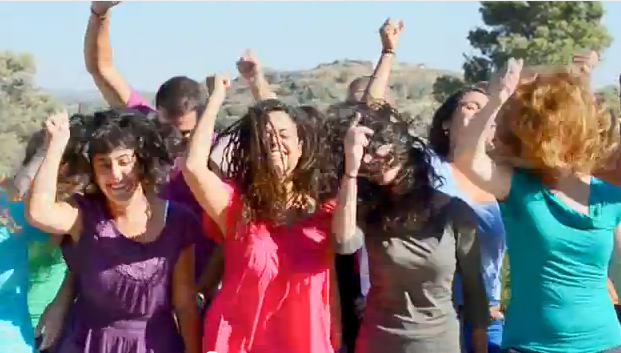Prof. Sam Lehman-Wilzig – Sukkot and the Challenge of Change
The holiday of Sukkot is a time to reflect on life’s transience – so goes Jewish conventional wisdom. From the coziness of our home and daily life, we move to a temporary “hut” – far less comfortable. But there’s another side to the holiday: leaving the sukkah to return to our regular comfort zone. It is here that we can find an important lesson for contemporary life: personal, social, and political.
Sukkot is a time of change. Summer is past, Autumn is upon us. Israel’s dry season is about to end; the rains are on their way. This is the type of change that humans can handle – physically and psychologically. Physically: we prepare for the oncoming cold weather (heavy clothing out of mothballs), get our flu shot, and prepare in other ways for the harsher season. Psychologically: we know what’s coming so although the winter might not be as amenable to human life, we have experience in dealing with it.
Similarly with Sukkot. As we move into the sukkah (literally, seven days for the very observant; figuratively, for other Jews most of the holiday), we are prepared to “suffer” the inconvenience of cramped space and occasional too-cold October nighttime temperature in the outdoors – knowing that in seven (or eight) days we’ll be back to “normal.”
So it went on for thousands of years. And then, around two centuries ago, the world changed – not in the traditional cyclical fashion of seasonal ups and downs, but rather real, permanent change into the heretofore unknown. Science, technology, public education and universal literacy, mass communications, and a host of other modern era factors gave altogether new meaning to the word “change.”
Modern change means going where we have no prior experience – either as individuals or as a society – with the constant, novel challenges that modernity throws at us. It’s as if we entered the sukkah from our present world at the start of the holiday – and a week later emerged (down the Alice in Wonderland “Rabbit Hole”) in a different galaxy.
The chaotic results are all around us: courts flummoxed by situations that would tax even King Solomon (https://www.timesofisrael.com/probable-biological-mother-in-embryo-mix-up-i-wish-i-could-hug-the-other-woman/), macro-economic gyrations every decade, dizzying social revolutions (women’s rights; gay rights; Black Power; etc.), and so on.
Most human beings are not equipped psychologically for such dramatic, drastic, and accelerating change. As a generalization (not too gross), this is the underlying reason for what we see these days around the world, a clear move towards greater conservatism and even reactionary politics. People want stability; I take that back – people NEED stability! Demagogic politicians promise a return to some idyllic prior state (culturally, socially, and ethno-nationally) and many people, thoroughly confused by the fast pace of drastic change in all walks of life, are ready to buy the message that we can return to the previous “State of (Our) Nature.” One can certainly sympathize with their (our) plight but looking to the past is not the way to go – especially as the “future” is always ahead, not behind us.
Metaphorically, then, the sukkah is a step down in life, but we know it’s coming, and it will also end. Contemporary life is no longer “Sukkot.” What is it then?
Ironically – or perhaps perspicaciously – on the intermediate Sabbath within the holiday of Sukkot (in a few days), we read Kohelet (Ecclesiastes), arguably the most depressing book in the entire bible (Job gives it a good run for its money). In Kohelet we are offered an almost uninterrupted litany of life’s travails (and futility) – only to end with the prescription that believing in the grace of God is the only way to safely (and sanely) traverse life’s trials and tribulations.
This is a pretty good prescription for allaying an individual’s existential angst. It doesn’t offer much utility, though, for an entire society undergoing the throes not of futility but rather its opposite – constant positive change: the miracles of modern medicine, the comforts of new technologies, greatly increased life span, the decline of human violent death (see Pinker’s The Better Angels of Our Nature (https://www.amazon.com/Better-Angels-Our-Nature-Violence/dp/0143122010), and numerous other modern age “positives.” The problem, of course, is that too much change of any sort – good, bad, or neutral – is discombobulating. And if it comes at us from every direction, incessantly, too many people will turn to political charlatans for succor.
I don’t have a panacea for this phenomenon; it seems that no one does. But perhaps spending more time in the sukkah can lend some perspective to “change” – better slow and easy than constant faster and bigger. And yes, it wouldn’t hurt to sit there for a while with Kohelet in hand…









